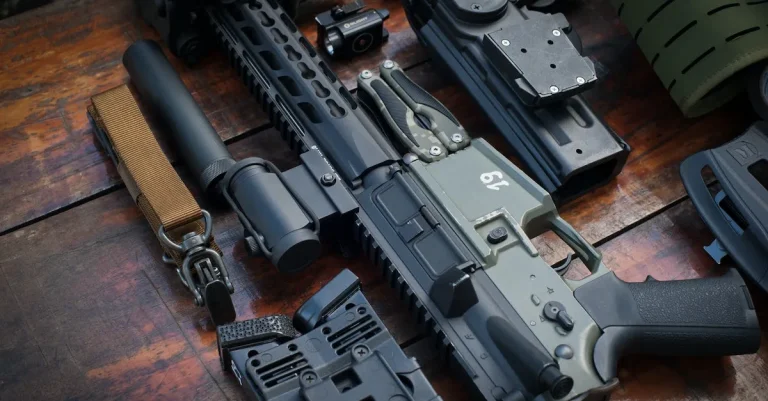Everything You Need To Know About Restricted Licenses In Florida
Getting your driver’s license is a rite of passage for most teenagers in Florida. But what if you make some mistakes along the way? You may end up with a restricted license, which comes with certain limitations.
If you’re short on time, here’s a quick answer to your question: In Florida, the DMV can issue restricted licenses to drivers under 18 or drivers whose regular license was suspended. Restrictions may include limits on when and where you can drive, requirements for additional driver education, and the use of an ignition interlock device.
In this comprehensive guide, we’ll explain everything you need to know about restricted licenses in Florida. You’ll learn about the different types of restrictions, eligibility requirements, how to get a restricted license, and what it takes to have the restrictions removed.
Types of Restricted Licenses in Florida
When it comes to driving in Florida, there are several types of restricted licenses that individuals may need to be aware of. These licenses are designed to provide certain privileges and restrictions based on the driver’s circumstances.
Let’s take a closer look at some of the most common types of restricted licenses in Florida.
Learner’s Permit
A learner’s permit is the first step for individuals who are just starting their driving journey. It allows them to practice driving under the supervision of a licensed adult who is at least 21 years old.
With a learner’s permit, drivers are only allowed to operate a vehicle during daylight hours for the first three months, and then they may drive until 10 p.m. after that period. This type of license is typically issued to teenagers who are learning to drive.
Intermediate License
Once a driver has successfully completed their learner’s permit phase, they can apply for an intermediate license. This license is available for drivers who are between the ages of 16 and 17. With an intermediate license, drivers have fewer restrictions compared to a learner’s permit.
They can drive unsupervised during specific hours, but there are still limitations on when they can drive at night. Additionally, there may be restrictions on the number of passengers they can have in the vehicle.
Business Purposes Only License
A business purposes only license is issued to individuals who have had their regular driver’s license suspended or revoked. This type of license allows individuals to drive for work-related purposes only.
It is important to note that this license does not grant the privilege to drive for personal reasons. Individuals who hold a business purposes only license must be able to provide documentation proving the need for driving for work-related purposes.
Ignition Interlock Device License
An ignition interlock device license is typically issued to individuals who have been convicted of driving under the influence (DUI). This license allows them to drive, but only if their vehicle is equipped with an ignition interlock device.
This device measures the driver’s blood alcohol concentration (BAC) and prevents the vehicle from starting if the BAC is above a certain limit. This type of license is meant to ensure that individuals who have been convicted of a DUI are driving sober.
Hardship License
A hardship license is granted to individuals who have had their regular driver’s license suspended or revoked due to certain circumstances, such as a DUI or accumulation of points on their driving record.
This license allows individuals to drive to specific locations, such as work, school, or medical appointments, during specific hours. It is intended to provide limited driving privileges to individuals who demonstrate a genuine need for transportation.
Understanding the different types of restricted licenses in Florida is crucial for individuals who find themselves in certain situations. Whether it’s a teenager starting their driving journey or someone facing a license suspension, knowing the options available can help navigate the road ahead.
Eligibility Requirements for a Restricted License
Obtaining a restricted license in Florida comes with certain eligibility requirements that need to be fulfilled. These requirements include:
Age Requirements
To be eligible for a restricted license in Florida, individuals must be at least 15 years old.
Reasons for License Suspension/Revocation
A restricted license is typically granted to individuals whose regular driver’s license has been suspended or revoked. Some common reasons for license suspension/revocation include:
- Driving under the influence of alcohol or drugs
- Accumulating too many points on their driving record
- Failure to maintain proper insurance coverage
- Committing certain traffic offenses
It’s important to note that the specific reasons for license suspension/revocation may vary in each case.
Completion of Driver Improvement Course
In order to qualify for a restricted license, individuals are often required to complete a driver improvement course. This course helps individuals improve their driving skills and knowledge of traffic laws.
Upon completion, they will receive a certificate that can be presented when applying for a restricted license.
There are several state-approved driver improvement courses available in Florida, both online and in-person. These courses cover topics such as defensive driving techniques, traffic laws, and safe driving practices.
SR-22 Insurance Coverage
In addition to completing a driver improvement course, individuals seeking a restricted license may be required to obtain SR-22 insurance coverage. SR-22 is a form that certifies that the individual has the minimum required auto insurance coverage in Florida.
This form must be submitted to the Department of Highway Safety and Motor Vehicles (DHSMV) before a restricted license can be issued.
SR-22 insurance coverage is typically required for individuals who have been convicted of certain traffic offenses, such as driving under the influence or driving without insurance. It is important to maintain continuous SR-22 insurance coverage for the duration specified by the court or the DHSMV.
For more information on obtaining a restricted license in Florida, it is recommended to visit the official website of the Florida Department of Highway Safety and Motor Vehicles at https://www.flhsmv.gov/.
Applying for a Restricted License in Florida
Getting a restricted license in Florida can be a great option for individuals who have had their driving privileges suspended or revoked. A restricted license allows drivers to regain some level of independence by granting them limited driving privileges for specific purposes, such as going to work, school, or medical appointments.
Here’s everything you need to know about applying for a restricted license in Florida.
Gather Required Documentation
Before applying for a restricted license in Florida, it’s important to gather all the necessary documentation. This typically includes a completed application form, proof of identification, proof of residency, and any required court documents.
Additionally, you may also be required to provide documentation supporting the need for a restricted license, such as proof of employment or enrollment in an educational program.
Submit Application and Pay Fees
Once you have gathered all the required documentation, you can submit your application for a restricted license to the Florida Department of Highway Safety and Motor Vehicles (DHSMV). Along with your application, you will need to pay the required fees, which may vary depending on the specific circumstances of your case.
It’s important to note that these fees are non-refundable, so make sure to double-check all the information before submitting your application.
Pass Vision and Written Tests
As part of the application process, you will be required to pass a vision test to ensure that your eyesight meets the minimum requirements for safe driving. Additionally, you will also need to pass a written test that covers the rules and regulations of the road.
It’s important to study the Florida Driver Handbook and familiarize yourself with the traffic laws to increase your chances of passing the written test.
Complete Traffic Law and Substance Abuse Course
Before being granted a restricted license, you will need to complete a Traffic Law and Substance Abuse Education (TLSAE) course. This course is designed to educate drivers about the dangers of driving under the influence of alcohol or drugs and to promote safe driving practices.
The course can be taken online or in-person at a state-approved provider. Once you have successfully completed the course, you will receive a completion certificate that you will need to provide to the DHSMV as part of your application.
Applying for a restricted license in Florida can be a straightforward process if you follow the necessary steps and provide all the required documentation. Remember to always comply with the restrictions and conditions of your restricted license to avoid further legal consequences.
For more information and to access the necessary application forms, visit the official website of the Florida Department of Highway Safety and Motor Vehicles (https://www.flhsmv.gov/).
Having Your Restriction Removed
If you have been driving with a restricted license in Florida, there are several steps you can take to have the restriction removed and regain full driving privileges. Here are some key factors to consider:
Maintain Clean Driving Record
One of the most important requirements for having your restriction removed is to maintain a clean driving record. This means avoiding any traffic violations or accidents during the probationary period.
By demonstrating responsible and safe driving habits, you show the authorities that you are capable of driving without restrictions.
Complete Probationary Period
Another crucial step is to complete the probationary period assigned to you. The length of this period will vary depending on the reason for the restriction. During this time, it is essential to comply with all the terms and conditions set forth by the court or the Department of Highway Safety and Motor Vehicles (DHSMV).
This may include attending traffic school, completing community service, or meeting other specific requirements.
Provide Proof of Insurance
Before your restriction can be removed, you will need to provide proof of insurance. This means obtaining a valid auto insurance policy that meets the minimum coverage requirements set by the state of Florida.
The DHSMV will typically require you to submit proof of insurance for a specified period of time, usually without any lapses in coverage.
Pass Driving Test
In some cases, the DHSMV may require you to pass a driving test to have your restriction removed. This test will evaluate your driving skills and ensure that you are capable of safely operating a vehicle without any restrictions.
It is essential to practice and prepare for this test to increase your chances of success.
Remember, the process of having your restriction removed can vary depending on the specific circumstances of your case. It is always advisable to consult with an experienced attorney or reach out to the DHSMV for guidance and clarification.
Tips for Driving with a Restricted License
Know Your Restrictions
When driving with a restricted license in Florida, it’s important to fully understand the limitations that have been placed on your driving privileges. These restrictions can vary depending on the reason for your restricted license, such as a DUI conviction or a medical condition.
It’s crucial to familiarize yourself with the specific restrictions outlined by the Florida Department of Highway Safety and Motor Vehicles (DHSMV). These restrictions may include limitations on the times of day you can drive, the reasons you can drive (such as only for work or medical appointments), and the areas you are allowed to drive in.
Carry Your License
Always carry your restricted license with you while driving. Law enforcement officers have the right to ask for your license at any time, and failing to present it can result in further penalties. It’s a good idea to keep your license in a secure and easily accessible place, such as your wallet or glove compartment.
In addition to your restricted license, it’s also important to carry any necessary documentation that proves your eligibility to drive with restrictions, such as a letter from your employer or doctor.
Avoid High-Risk Situations
When driving with a restricted license, it’s essential to avoid high-risk situations that could increase the likelihood of an accident or violation. This means refraining from driving under the influence of alcohol or drugs, as well as avoiding distractions like texting or talking on the phone while driving.
Additionally, it’s a good idea to stay away from areas with heavy traffic or road construction, as these situations can be more challenging to navigate with restricted driving privileges.
Follow the Rules of the Road
One of the most important tips for driving with a restricted license is to follow all the rules of the road. This includes obeying speed limits, using turn signals, and coming to a complete stop at stop signs.
By consistently following the rules, you can minimize the risk of being pulled over by law enforcement and facing further consequences. It’s also important to note that any additional traffic violations or accidents while driving with a restricted license can lead to more severe penalties, so it’s crucial to be extra cautious and mindful of your actions on the road.
Conclusion
Getting a restricted license in Florida can be a complicated process, with many requirements to meet before restrictions are lifted. The limitations may feel frustrating, but try to view it as an opportunity to improve your driving skills and habits. Show that you can drive safely and responsibly, and your full privileges will be restored in no time.
With this guide, you should now have a thorough understanding of restricted licenses in Florida – the different types, eligibility criteria, application process, and tips for obeying your restrictions. Use this knowledge to get through the licensing process smoothly and get back on the open road safely.








